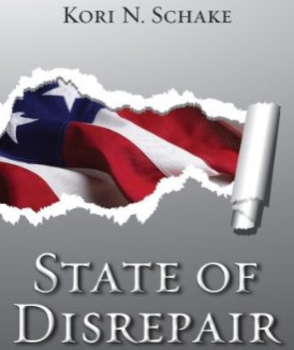Kori Schake
Kori Schake is a research fellow at the Hoover Institution.
During the 2008 presidential election, she was senior policy adviser to the McCain-Palin campaign, responsible for policy development and outreach in the areas of foreign and defense policy.
From 2007 to 2008 she was the deputy director for policy planning in the state department. In addition to staff management, she worked on resourcing and organizational effectiveness issues, including a study of what it would take to “transform” the state department so as to enable integrated political, economic, and military strategies.
During President Bush's first term, she was the director for Defense Strategy and Requirements on the National Security Council. She was responsible for interagency coordination for long-term defense planning and coalition maintenance issues. Projects Schake contributed to include conceptualizing and budgeting for continued transformation of defense practices; the most significant realignment of US military forces and bases around the world since 1950; creating NATO's Allied Command Transformation and the NATO Response Force; and recruiting and retaining coalition partners for operations in Afghanistan and Iraq.
She has held the Distinguished Chair of International Security Studies at West Point, and also served in the faculties of the Johns Hopkins School of Advanced International Studies, the University of Maryland’s School of Public Affairs, and the National Defense University. She is on the boards of the journal Orbis and the Centre for European Reform and blogs for Foreign Policy’s Shadow Government.
Her publications include State of Disrepair: Fixing the Culture and Practices of the State Department (Hoover Institution Press, 2012), Managing American Hegemony: Essays on Power in a Time of Dominance (Hoover Institution Press, 2009), “Choices for the Quadrennial Defense Review” (Orbis, 2009), “Dealing with a Nuclear Iran” (Policy Review, 2007), and “Jurassic Pork” (New York Times, 2006). She coauthored “How America Should Lead” (Policy Review, 2002), and coedited The Berlin Wall Crisis: Perspectives on Cold War Alliances (2002), and “Building a European Defense Capaibility” (Survival,, 1999).
From 1990 to 1996, she worked in Pentagon staff jobs, first in the Joint Staff’s Strategy and Policy Directorate (J-5) and then in the Office of the Secretary of Defense.











